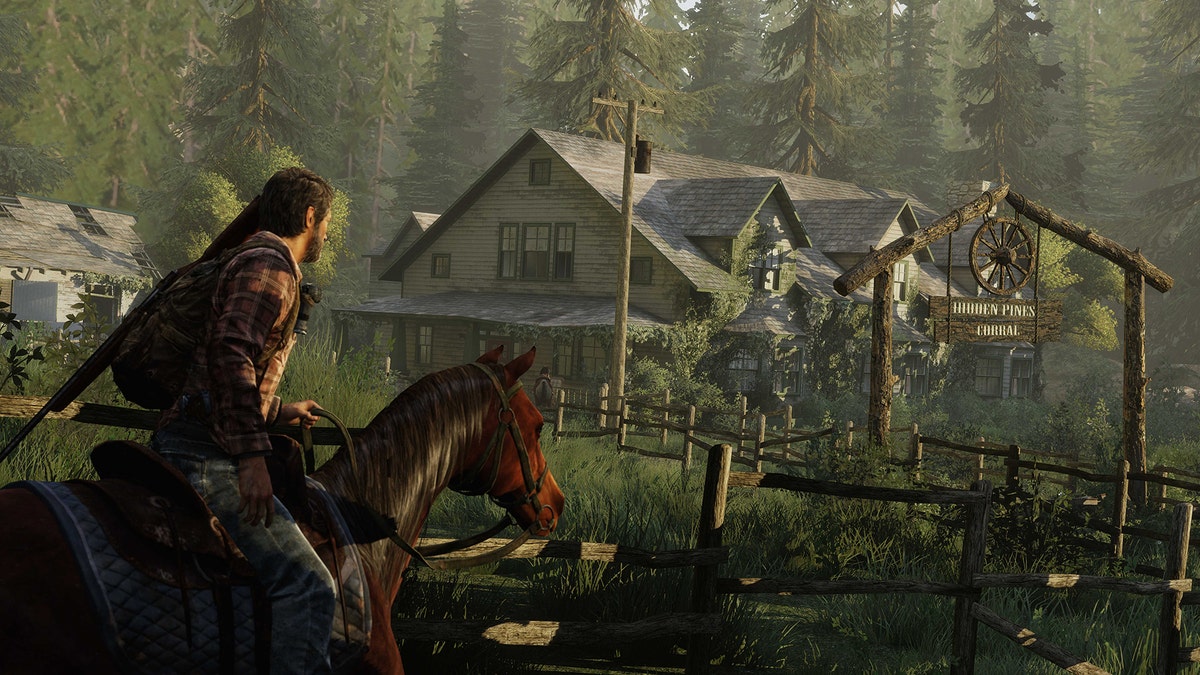
(Sony.)
When I tell people I prefer video games to movies, they look at me like I’ve said I prefer a Big Mac to a filet mignon.
I explain that games are more engaging, have deeper stories and add up to a better experience. But to most non-gamers, I am just saying Pac-Man is better than “The Godfather.”
But now I can just shove “The Last of Us: Remastered” (Sony Computer Entertainment) into their hands and say, “Go, play, and come back when you’re done,” confident that if they do, they will understand why gaming is the superior medium.
“The Last of Us” – a survivor horror title set in a post-apocalyptic, zombie-infested USA, was one of the best games on the PlayStation 3 when it was released last year. It has been remastered and rejiggered for the PlayStation 4, and now it’s one of the best games on that system too.
On the face of it, TLOU seems pretty standard, even clichéd. Zombies – sorry, the “infected” – have taken over the U.S., and the non-infected are camping out in totalitarian zones to keep the infection at bay. You play Joel, a middle-aged man who suffered personal tragedy when all hell broke loose 20 years ago, and who teams up with Ellie, a precocious 14-year-old who holds a big secret.
Joel and Ellie must trek across the American wilderness to escape the military and unlock the secrets to halting the infection.
“The Last of Us” falls into many of the zombie tropes of both video games and TV shows like “The Walking Dead.” There are the “fast zombie,” the “deadly zombie who can’t see you but can hear well” and, of course, “the big fat zombie who requires half your ammo to take down.” Fans of the AMC show will recognize the humanity, the survivalist mentality and the sense of isolation from which TLOU borrows heavily.
Yet behind the clichés is something incredible. “The Last of Us” rests on two factors – the characters and its gameplay.
The characterization is superb, with the relationship between the grizzled Joel and the spritely Ellie the star attraction. Naughty Dog, the game’s developer, has focused on making the characters, not the zombies, the focus of “The Last of Us.” And they shine through.
The dialogue, provided by actors Troy Baker and Ashley Johnson, is understated and authentic. The development of the relationship – the hardened Joel softens under Ellie’s warmth, while Ellie learns from Joel about the world outside the totalitarian “zones” – is touching. It brings gamers closer to the characters and invests them in the story, which is packed with emotion and doesn’t cheaply pull at your heartstrings. It makes for a mature, well-developed and very powerful tale.
Though it initially seems to be standard third-person shooter fare, the gameplay distinguishes itself from other zombie games by emphasizing an element of stealth. As two scavengers with no military training, you (Joel) and Ellie have low ammunition and poor weaponry that needs crafting and upgrading. You’re a pretty bad shot, too, which means that going in Rambo-style will leave you out of ammo, missing your shots and, eventually, dead.
The better tactic is to sneak around your enemies, distract them and take them out silently using melee attacks, bottles and bricks. The combat is realistically brutal, with bones cracking, nail bombs tearing baddies apart and zombies screaming as they burn alive...ish. It is an example of the brutal, hostile world that Ellie and Joel live in.
TLOU also avoids the trap of making zombies run-of-the-mill. There are large chunks of the game where you won’t encounter the infected at all, making the times you do much scarier and more intense.
Unfortunately, TLOU is still a few steps from perfection. While the environments vary, some overstay their welcome, like the ubiquitous drab sewer levels, warehouses and war-torn streets that seem to go on forever. Ellie is a useful companion, but she frequently gets in the way as you’re making your shot, and some of the boss battles and set-pieces are unnecessary and frustrating.
The remastered edition makes no significant changes to the gameplay, but it does upgrade the graphics significantly. The 2013 release pushed the PlayStation 3 to its limits, so the game is more suited to the PS4, where the title’s excellent landscapes and character models can shine even more. Upgrading to a 1080p resolution and 60 frames per second makes the game feel like a genuine next-gen title for the most part, but there are a few bits of pop-up and some dodgy textures that remind you you’re playing a remastered PS3 game.
Packed into “The Last of Us: Remastered” is a whole host of downloadable content added to the original version. Most of it is just extra guns and maps for the game’s solid multiplayer mode, but it also includes the excellent prequel “Left Behind,” which focuses on Ellie’s story before she meets Joel. The latter retailed at $15, so it’s a welcome inclusion, along with the director’s commentary and a photo mode.
“The Last of Us: Remastered” is not an overhaul, and it doesn’t touch the gameplay, but is a solid polish of an already excellent title. If you already own it on the PS3, the shinier graphics and bits of downloadable content probably aren’t worth buying it again. But if you missed out on “The Last of Us” the first time around, then “The Last of Us: Remastered” is a great excuse to dive into one of the best games of the last console generation.
Rating: 9/10
The Entertainment Software Rating Board rating is M -- Mature.
Retail price: $49.99
